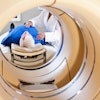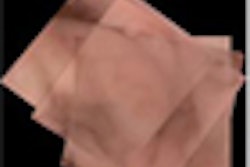PET/CT scans with the imaging agent choline could detect recurring prostate cancer sooner than conventional imaging technologies in some patients who have had their prostates surgically removed.
That conclusion comes from researchers at Azienda Ospedaliero-Universitaria di Bologna Policlinico S. Orsola-Malpighi in Bologna, Italy. The study is published in the September issue of the Journal of Nuclear Medicine.
Physicians monitor patients who have undergone prostatectomy by checking levels of prostate-specific antigen (PSA) in the blood. If PSA is detected after radical prostatectomy, imaging techniques are essential to determine whether -- and, if so, exactly where in the body -- the cancer has recurred.
The Italian study examined PET/CT scans with radioactively labeled choline, a promising molecular imaging tool that has been shown to be more accurate than conventional imaging techniques such as CT, MRI, and bone scintigraphy in detecting recurrent prostate cancer.
Lead author Dr. Paolo Castellucci noted that in most patients with biochemical relapse after radical prostatectomy, conventional imaging methods often return false-negative results, meaning that the imaging techniques fail to detect cancer that is present in the body.
The researchers found that for some patients, PET/CT with choline can improve the detection of cancer soon after PSA levels are measured, enabling physicians to tailor treatment to individual patients in the early stages of recurrence, thus increasing their chances of recovery.
The study included a total of 190 patients who had undergone radical prostatectomy and showed biochemical relapse in follow-up examinations. These patients were grouped according to PSA levels and studied with choline PET/CT scans. In addition, researchers also factored in PSA kinetic factors, such as velocity -- the rate at which PSA levels change -- and the PSA doubling time for each patient.
The study indicated that whole-body PET/CT imaging with choline is significantly better than conventional imaging technologies in detecting prostate cancer in patients with biochemical relapse after radical prostatectomy.
The researchers also found a strong association between PET/CT detection of recurrent cancer, PSA levels, and PSA kinetics. The authors suggested that based on the results, only patients with a high probability of having a positive scan based on PSA levels and kinetics should undergo choline PET/CT scans.
By using these criteria, the number of inappropriate choline PET/CT scans can be reduced and early detection of prostate cancer relapse can be improved.
Related Reading
Higher urethral dose means more toxicity when treating prostate cancer, September 1, 2009
VMAT bests IMRT for prostate cancer treatment time, August 24, 2009
Brachytherapy combo improves prostate cancer results, July 22, 2008
External radiation and brachytherapy effective for high-risk prostate cancer, August 27, 2007
Copyright © 2009 AuntMinnie.com

















